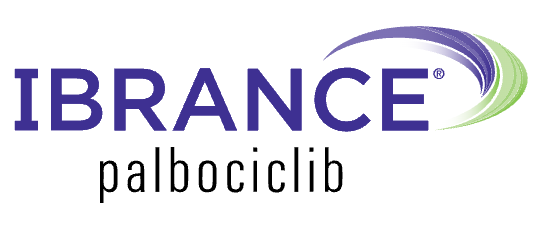Introduction
Palbociclib, a first-in-class cyclin-dependent kinase 4 and 6 (CDK4/6) inhibitor, has revolutionized the landscape of advanced metastatic breast cancer treatment. In this blog, we delve into the specifics of palbociclib, exploring its mechanism of action, clinical applications, benefits, and challenges associated with its use in treating breast cancer.
Mechanism of Action
Palbociclib acts upon CDK4 and CDK6 enzymes, pivotal regulators facilitating cell cycle advancement from the G1 to the S phase. These enzymes are instrumental in fostering tumor proliferation by activating cyclin D-dependent kinases. Through selective interaction with these enzymes, palbociclib impedes the phosphorylation of retinoblastoma protein (Rb), thus interrupting cell division and instigating cell cycle arrest.
Clinical Applications
Initially, the FDA approved Palbociclib for use alongside aromatase inhibitors in postmenopausal women with hormone receptor-positive, HER2-negative advanced or metastatic breast cancer that had progressed after endocrine therapy. Subsequent approvals expanded its usage to include premenopausal women with the same type of breast cancer who either showed intolerance to endocrine therapy or were contraindicated for both endocrine therapy and chemotherapy.
Benefits of Palbociclib
In randomized controlled trials, palbociclib showed significant improvements in progression-free survival (PFS) when added to endocrine therapy in various settings, such as first-line treatment for metastatic breast cancer and adjuvant therapy for early-stage high-risk breast cancer. Additionally, palbociclib has demonstrated favorable safety profiles, allowing for long-term treatment durations and potentially enhancing overall survival rates.
Adverse Events
Like all medications, Palbociclib can cause side effects. Here’s an overview of potential side effects and important considerations:
Common side effects:
1. Low blood cell counts: Increases infection risk, bruising/bleeding, and fatigue. Regular monitoring by your doctor is crucial, with dose adjustments as needed.
2. Nausea and vomiting: Manageable with medications and dietary changes; consult your doctor if severe or persistent.
3. Diarrhea: May cause dehydration and discomfort; medications or dietary adjustments can help.
4. Hair loss: Typically temporary; hair regrowth usually occurs after treatment ends.
5. Mouth sores: Can hinder eating and drinking; maintain good oral hygiene and use pain relief as needed.
6. Fatigue: Common and may persist post-treatment; rest and communication with your doctor are important.
7. Muscle and joint pain: Manage with pain relief and stay active.
Less common but serious side effects:
1. Lung problems: Inform your doctor immediately if you experience coughing, shortness of breath, or chest pain.
2. Liver problems: Regular monitoring of liver function through blood tests is necessary.
3. Allergic reactions: Though rare, these reactions can be severe. Seek urgent medical attention if you encounter difficulty breathing, swelling, or hives.
4. Second cancers: There’s a slight risk of developing other cancers later in life after Palbociclib treatment.
Other serious but less frequent complications include QT prolongation and venous thromboembolism events.
Combination Therapy
To maximize therapeutic benefit, palbociclib is commonly employed in combination with other targeted drugs or immunotherapies. For instance, palbociclib plus fulvestrant has shown promising results in the second-line setting for HR+/HER2− metastatic breast cancer, while palbociclib plus pembrolizumab has displayed activity in PD-L1–selected patients with HER2-negative metastatic breast cancer.
Challenges and Limitations
Despite its benefits, palbociclib has limitations. Resistance can develop due to mutations in CDK4/6 substrate genes, reducing sensitivity to the drug. It’s effective only against HR+/HER2− breast cancer, excluding other subtypes. Additionally, its cost may hinder accessibility for some patients.
Conclusion
Palbociclib represents a groundbreaking advancement in the field of breast cancer treatment, offering new options for patients with HR+/HER2− advanced or metastatic breast cancer. As our understanding of CDK4/6 inhibitors continues to evolve, researchers aim to optimize dosing strategies, identify biomarkers predictive of response, and overcome resistance mechanisms further to enhance the effectiveness of palbociclib and similar treatments. To check availability of generic brand of palbociclib in India, interested individuals can contact the Patient Support Team at (+91) 9315705373 or via email at help@sansfro.com.



